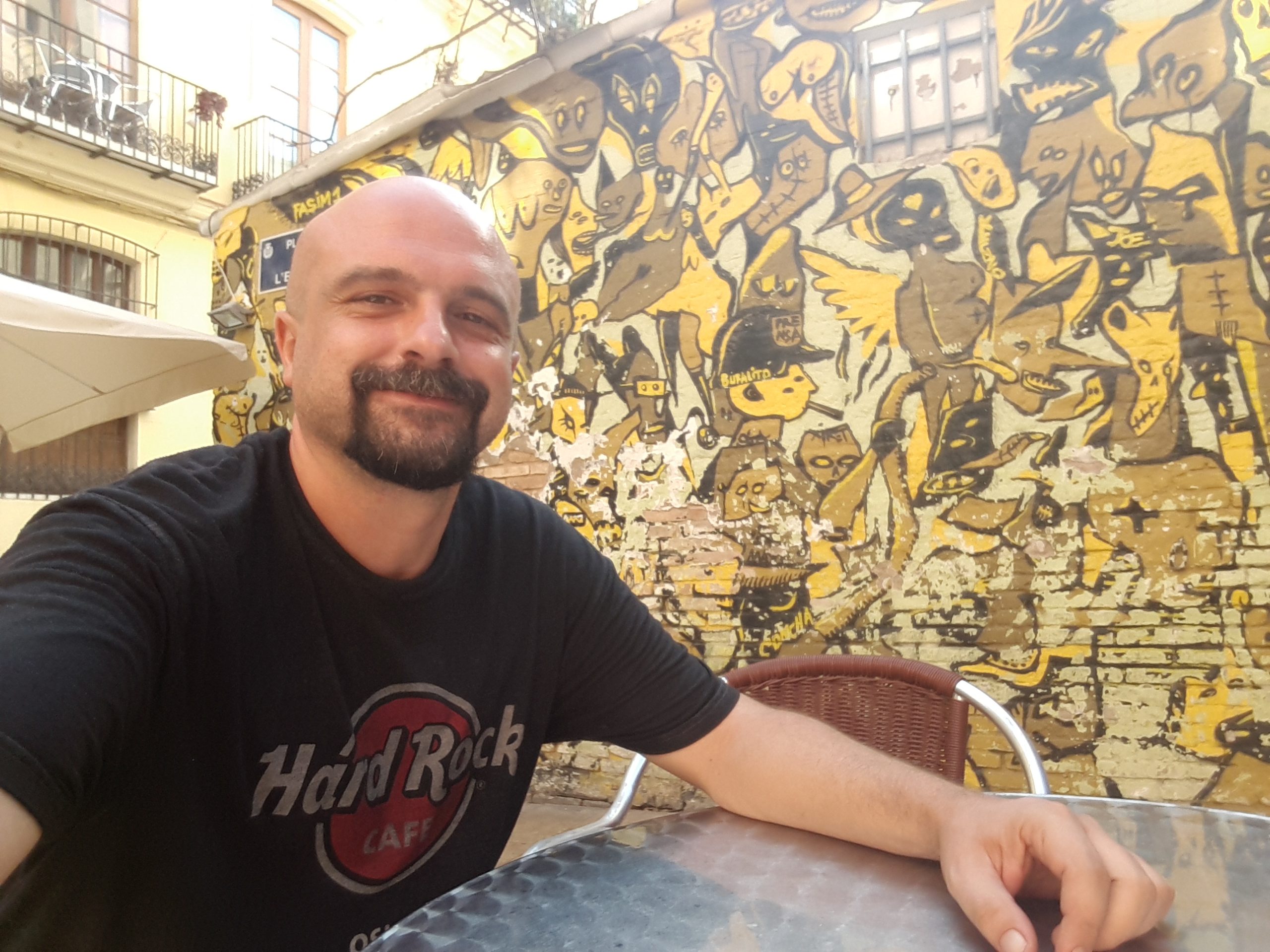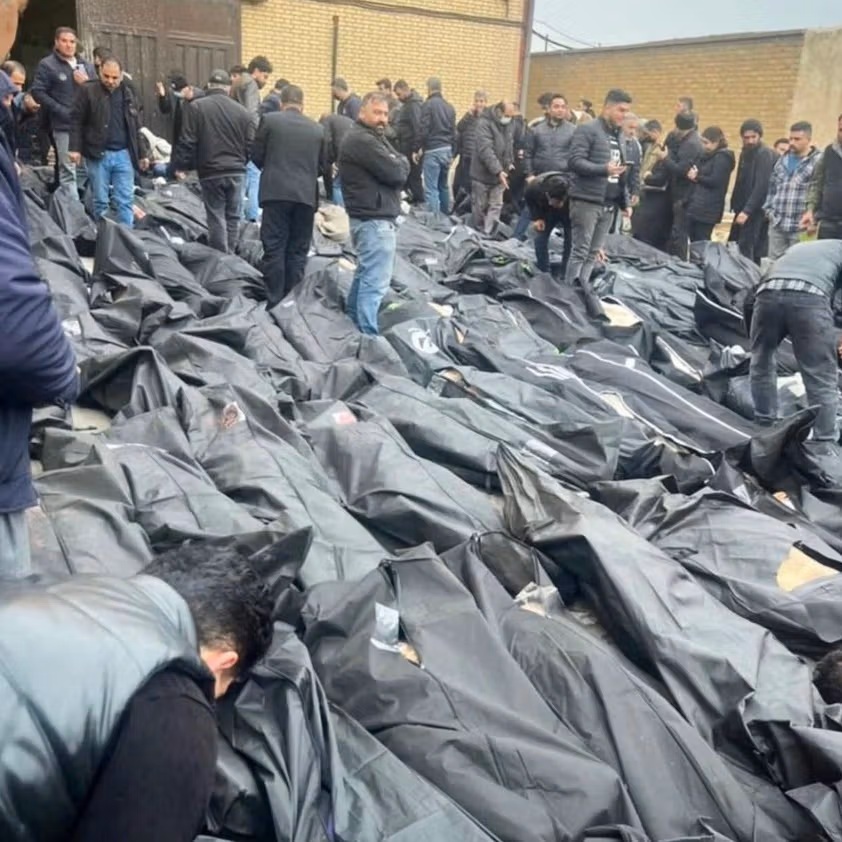
A conversation with our literary counterpart, Baris Cansevgisi, from Turkey. He specialises in the short end of fiction – novellas, short stories, flash fiction – and in both science fiction and horror. Even his SF has a psychological and philosophical bent to it. He’s the thinking man’s genre writer, never content to stick to action and adventure and preferring the journey in and outwards.
By Emad Aysha
Baris is a globe trotter, having lived and been educated in several countries and languages. (I saw a picture of him with lemurs, I presume in Madagascar). He currently resides in Ankara and has resigned to a life of teaching English at a private university.
What attracted you to genre literature, your favourite authors, and what made you want to write it in English specifically?
Watching popular SF series like V, Blake’s 7, Star Trek and Doctor Who, as well as reading books like Dune (Frank Herbert), The Time Machine (H.G. Wells) and Flowers for Algernon (Daniel Keyes) while growing up, one tends to fall in love with SF. That’s basically what happened to me. Adding my interest in psychology, sociology and anthropology into the mixture, I have begun to explore the endless possibilities one can create in SF regarding world-building and plotting.
SF is limited only by the writer’s creativity and the reader’s imagination. I mostly write SF in English as I find the language more settled for this genre.”
You have published with Sky Island Journal and Lucent Dreaming Mag or are self-published. Is writing more of a hobby for you than anything else? Can you make a living with it?
Writing has to stay a hobby for me for the time being. Apart from a few mainstream and well-known authors, I believe Turkish writers do not earn enough to make a living by sticking only to writing. Not until they have traditionally published a book or have a solid fan base, just like Orhan Pamuk, Elif Şafak and Ahmet Ümit. As for me, I have a regular day job, and I can only lead a nocturnal life when it comes to pursuing my passion. I do earn from writing, but that’s mainly in the form of ghostwriting. When it comes to teaching SF, I have never taught SF as a lesson on its own.
Are you a member of Bilimkurgu Kulübü, the premier sci-fi association in Turkey? Do they also have a national writer’s federation like in Egypt?
No, I am not a member of Bilimkurgu Kulübü. Sadly, due to my hectic teaching schedule, I can hardly find the time to attend their activities, mainly in Istanbul. I currently lack this in my life – participating in social activities (in person) with like-minded people, networking and sharing ideas. I believe Turkey’s national writers’ federation is called Türkiye Yazarlar Birliği; I don’t have much information about them as I mostly write in English.
Tell us about your local fanbase.
Apart from family and friends, my fanbase mainly comprises women aged 30 to 70. I believe this type of fanbase is mostly attracted to softer SF with a stronger emphasis on human psychology, which is basically what I mostly write about: The social and psychological effects of SF elements like time travel or parallel worlds on ordinary people. Besides social science fiction, I write short pieces of apocalyptic SF and stories about lucid dreaming.
On the topic of military SF, there is the famous 2004 novel Metal Fırtına (or Metal Storm) by Orkun Uçar and Burak Turna. Were people in Turkey genuinely scared that the Americans would invade, just like they did Iraq? Was the Metal Fırtına series a success?
First, let me say that Metal Fırtına is considered Political/Military Fiction as the novel lacks common sci-fi elements (not even laser rifles or aliens). The book, having a plausible plot of the US forces invading Turkey, had initially made it a best-seller amongst the Turkish population.
Well, some people were initially scared because it's the first novel of its kind... but the feeling transformed into anti-Americanism shortly after. It was seen as something that could quickly happen then. And we had the example of Iraq. The core idea was very credible. However, it seemed unlikely for US invasion (ground) forces to be able to move through mountainous Turkey in 2-3 days.
Metal Fırtına did not fare well critically as it had been criticised for the writers lacking knowledge of military strategies, the proper militaristic jargon or even geographical understanding of Turkey. Later, the writers decided to continue the series independently, publishing a set of different Metal Storm follow-ups (Orkun Uçar - 4 more books) and (Burak Turna – 6 more books).
Is this the sci-fi action equivalent of Ertuğrul or Valley of the Wolves?
In that sense, yes, they are very similar. But nearly every action-adventure Turkish series or film are identical in that sense. Have you seen Tarkan movies (played by Kartal Tibet)? Or Dünyayı Kurtaran Adam (The Man Who Saved the World)... I am ashamed of this film as it is considered one of the worst SF movies in history.
What’s the anime scene like in Turkey?
Anime has been gaining popularity, especially among the younger generation in Turkey, in the last couple of decades. I am happy about this as I am an anime fan, and now it’s easier to access a wide range of anime (and manga) in English and Turkish. To date, Turkey has produced children’s cartoons focusing on traditional folk stories, but we do not have a sci-fi cartoon brand. There have been a couple of attempts but to no avail. Cyberpunk is getting increasingly popular, and I have started hearing about some cyberpunk anime projects.
A generation of Egyptians and Arabs have been raised watching Turkish soap operas and period dramas. You can find many translated texts by Orhan Pamuk and Elif Shafak in Egyptian bookstores. Do you think Turkish SF (in translation) would sell well here?
I don’t see why not. Egyptian and Arab readers are more likely to find common cultural elements like religion, geography and social life in Turkish SF stories. There are few but some well-published Turkish SF writers such as Müfit Özdeş (short stories), Aşkın Güngör, Zühtü Bayar and Sadık Yemni (along with fantasy).
What expectations of cooperation from your Arab counterparts in the Arab world?
I have many projects in mind but need more time to complete them. Firstly, as I’m a pantser and not a plotter, I have a lot of short stories that need to be heavily edited by me. I also have an incomplete novel, which has been untouched for the last five years. I want to finish that. I also want to write more in Turkish to see how well I can fare. And finally, work on a space opera TV series script I have been thinking of lately. For the near future, I think I’ll focus more on my blog and keep on writing short pieces on anything that ticks my brain.
(For a comprehensive overview of his work, including essays and commentary, please visit his website; for one of his delightfully whimsical stories, please check out “The Night Couple”).






